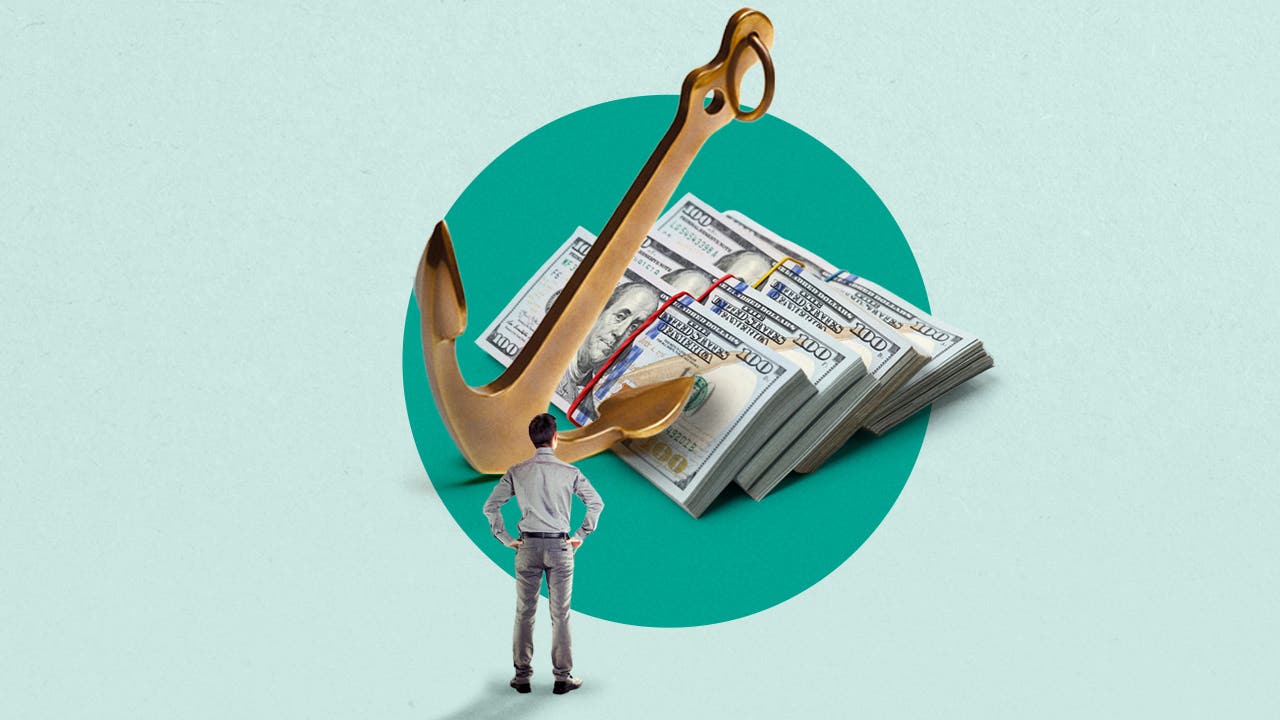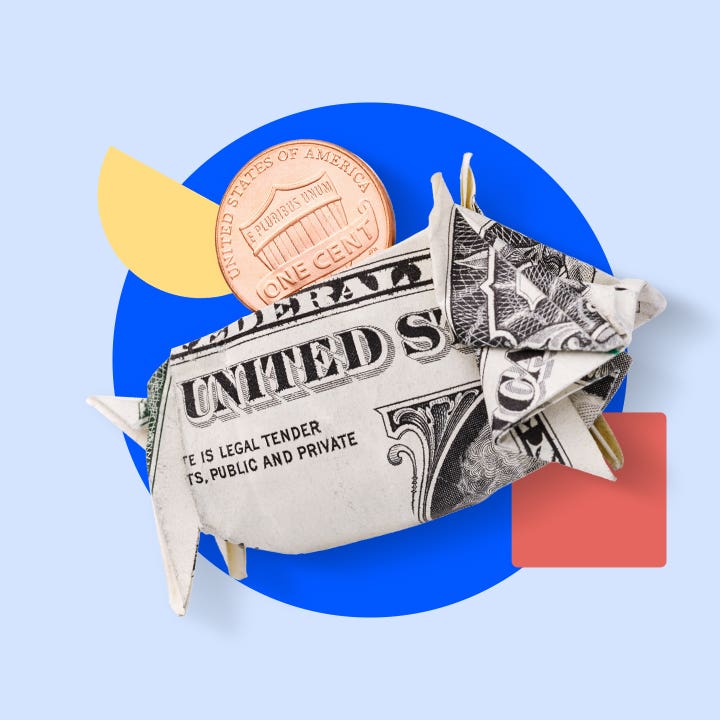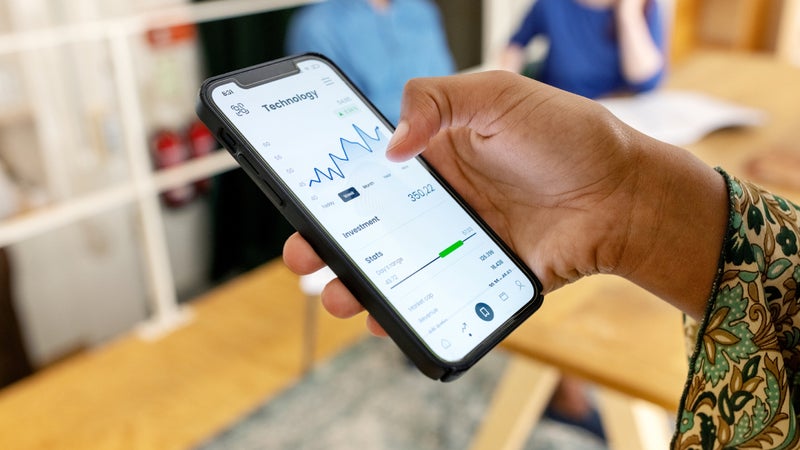What is a money market account?

The Bankrate promise
At Bankrate we strive to help you make smarter financial decisions. While we adhere to strict , this post may contain references to products from our partners. Here's an explanation for .
A money market account is an interest-bearing account you can open at banks and credit unions. Like a savings account, they are a type of deposit account for savers, But a major difference between the two is that a money market account tends to offer some checking account features. (While it’s possible for a savings account to offer check-writing privileges, it’s more common for money market accounts to offer this feature.)
It’s also important to note that money market accounts are different from money market mutual funds, which are securities and not deposit accounts.
Money market accounts often pay competitive rates and are a safe place to stash your savings. Consider opening a money market account if you want a predictable yield and a federally insured account.
Money market accounts support more ways to withdraw money than traditional or online savings accounts. However, money market accounts are typically still limited to six withdrawals per month, and aren’t intended to be used as a replacement for a checking account. They may require bigger minimum deposits and balances compared to savings accounts.
Pros and cons of money market accounts
Advantages
- You can earn interest: Right now, the best money market accounts pay around 4 to 5 percent annual percentage yield (APY), even outpacing inflation right now.
- Deposits are insured: Your money is insured up to $250,000 per account owner with accounts at a bank or credit union.
- Cash is accessible: Your account often comes with a debit card and/or physical checks.
Disadvantages
- Large minimum deposit requirements: Money market accounts may require a larger deposit than traditional savings accounts either to open the account or to earn the top APY.
- Lower yields than other bank products: Certificates of deposit (CDs) may pay a more competitive yield. Investors who are okay with taking on more risk can also achieve higher payouts from stocks and bonds.
- Restrictions on withdrawals: While you might write checks or use a debit card to move money out of your money market account, there are limits because these accounts are not primarily built for a high volume of transactions.
How money market accounts work
Money market accounts combine some features of savings and checking accounts. They may come with check-writing privileges or a debit card, like a checking account. But typically the number of withdrawals permitted each statement period is limited to six, as with a savings account.
Unlike checking accounts, money market accounts accrue interest at competitive rates, which are frequently tiered based on the account’s balance. The rate on a money market account is variable, and there may be a minimum balance requirement to earn the rate.
Because they offer limited access to funds in the account, money market accounts might be a good fit for shorter-term savings goals, such as building an emergency fund. Then you’re able to access the money when necessary, unlike with a CD, which typically doesn’t permit withdrawals until the end of a set term length without imposing a penalty.

Compare money market account offers today
Achieve your savings goals with a money market account that offers a high yield and check-writing privileges.
Compare ratesAre money market accounts safe?
Money market accounts at federally insured banks are very safe, as they are protected by the Federal Deposit Insurance Corp. (FDIC) in the event that a bank fails.
The FDIC insures up to $250,000 per depositor, per account ownership type at each bank. This means that if you have $200,000 in a money market account and $50,000 in a checking account with the same bank, all of your money is protected. Anything over this amount would not be insured (unless it falls into a different ownership category, such as a jointly owned account).
For federally insured credit unions, the funds in a money market account are insured by the National Credit Union Administration (NCUA), which has the same rules as the FDIC for how much of a depositor’s money is protected.
How to choose the best money market account
A good place to start researching is to take a look at some of the highest money market account APYs available. Start your search at a local bank or credit union, but also consider online banks, which tend to offer higher rates.
The APY indicates how much you will earn with compound interest over the year. In other words, it’s the interest earned on your first deposit as well as the interest earned on top of other interest earnings. The higher the number, the more your money will grow.
Next, review any account restrictions. Check to see whether the money market account requirements make it too difficult to earn the yield or to sidestep a fee. It’s not uncommon to see large balance requirements, such as $25,000.
And speaking of fees, make sure to look for them, including whether the account charges a penalty if you close it within three months of opening. Other fees to consider include:
- Monthly maintenance fees
- Transfer fees
- Excess withdrawal fees
- Inactive account fees
One final thing to consider is what options are available for accessing funds in the account. Most money market accounts offer checks or a debit card with the account, but not always both. Some banks may also have varying limits on how many withdrawals you can make each statement cycle.
What is the difference between a money market account vs. other accounts?
Money market account vs. checking account
While money market accounts may offer check-writing privileges, these accounts aren’t designed to be used like checking accounts. A former federal mandate, Regulation D, limited withdrawals from savings and money market accounts to no more than six per month, which many financial institutions still impose. The best money market account rates are much higher than checking account rates, however.
Money market account vs. savings account
Savings accounts and money market accounts have more in common than not: They pay interest, and they are designed to keep you saving. But there are a few key differences. Money market accounts may have higher minimum balance requirements. With a money market account, you can also get checks and/or a debit card. It’s less common for a savings account to come with this level of liquidity.
Money market account vs. CD
A certificate of deposit could pay you a more competitive rate than a money market account, but your money is more liquid in a money market account than in a CD. If you are deciding between a money market account and a CD, evaluate what savings goals you have and how much access you’ll need to the funds. The liquidity of a money market account might make it a good option for shorter-term goals.
What is the difference between a money market account and a money market fund?
While money market accounts and money market funds have similar names, they are very different. Most notably, money market funds are not covered by FDIC insurance, and you could lose your principal. Here is a breakdown on their primary differences.
| Money market account | Money market fund | |
|---|---|---|
| Purpose of account | For your emergency fund or shorter-term savings goals. | Often for individual investors seeking a parking spot for their cash. |
| How to invest | Deposit money at a financial institution online or in person. | Buy shares at a brokerage, bank or mutual fund company. |
| Accessing funds | Can withdraw money up to six times per month. (This limit can vary by bank.) | You have ready access to cash. |
| Insurance coverage | Up to $250,000 per bank or credit union customer | No FDIC or NCUA insurance (even when you buy them through a bank) |
Bottom line
Money market accounts are a safe option for storing shorter-term savings or an emergency fund. Unlike money market funds, these accounts are protected by federal insurance and come with virtually no risk of losing your principal.
Make sure to shop around for the best rates and look out for minimum balance requirements before settling on a money market account.




